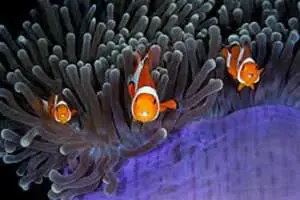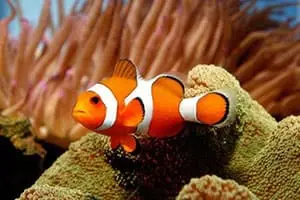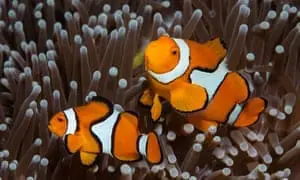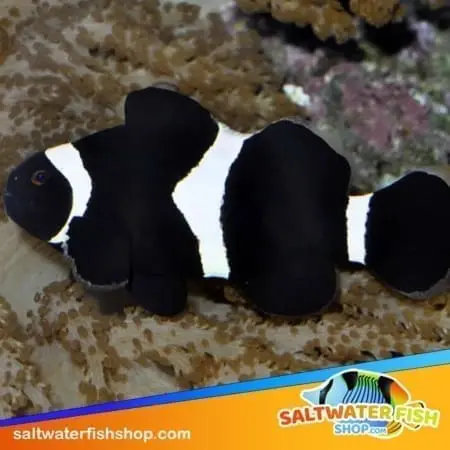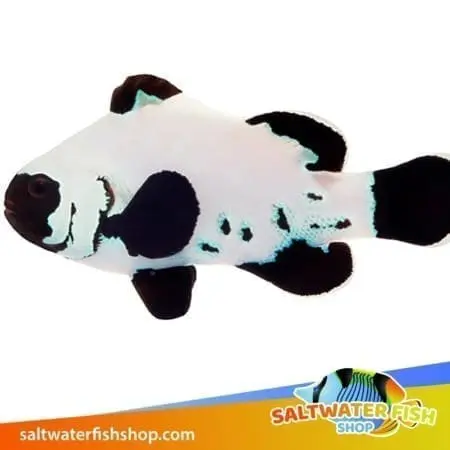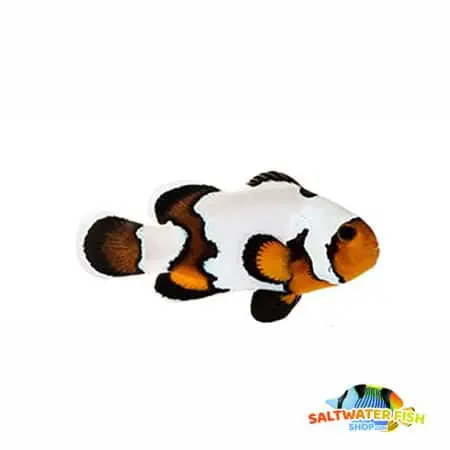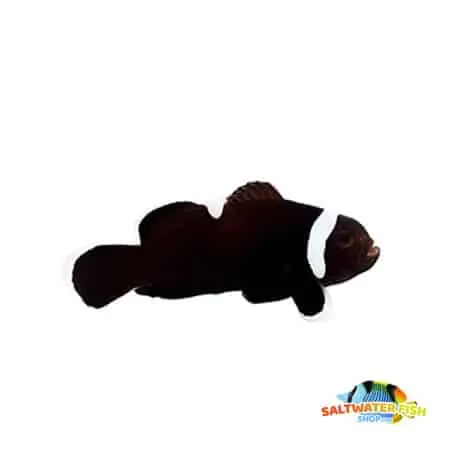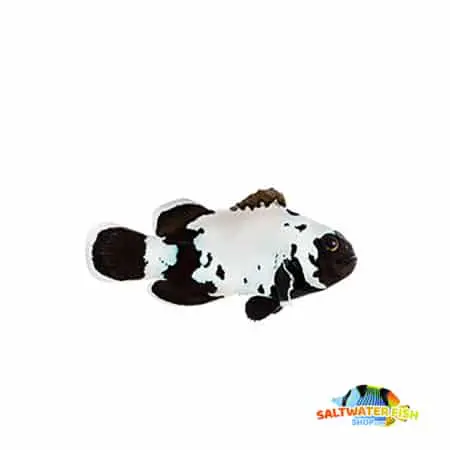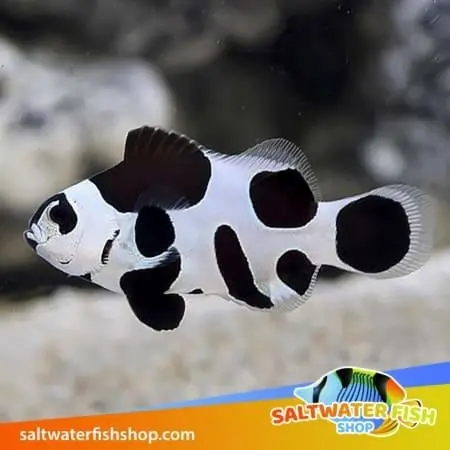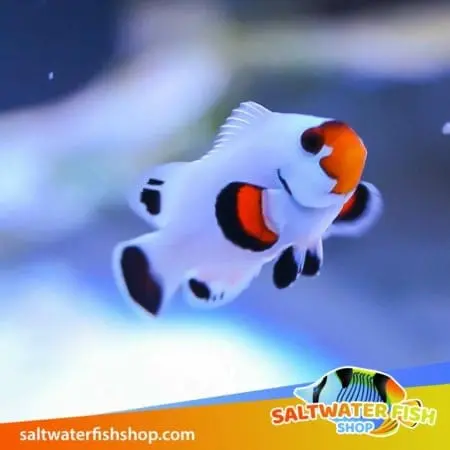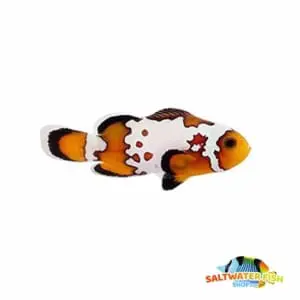Clownfish Tank Conditions
Clownfish need a tank that can hold at least 30 gallons of water. Hiding places are a must for clownfish, because they make them feel safe. Reef setups are not necessarily a must for clownfish, as they can thrive in a fish-only tank too. Their water must stay between 74 to 78 degrees Fahrenheit and have a specific gravity of 1.020 to 1.024.
The ideal tank conditions for saltwater clownfish depends on the species. In general, an aquarium for these fish must recreate the features of their natural habitat so that the fish will grow up healthy. Consider the following when setting up an aquarium:
Salinity:
Saltwater fish need saline water. This could be achieved by mixing salt into the aquarium water. The recommended amount is one half cup of salt per one gallon water.
Water hardness:
Ocean water magensium and calcium can be replicated in tanks by adding crushed shells and coral in the aquarium. Tank decorations are sometimes made with calcium in them to be used for this purpose as well.
Oxygen:
Bubblers and water filters help necessary oxygen be distributed in tank water. Fish need oxygen in their water to survive. Aquariums with wide tops allow oxygen to also enter from the surface.
Size:
Clownfish need room to hide and explore. A 20 gallon tank is suitable for one clownfish. If keeping anemone with your clownfish for sale, you will need a larger tank. Your tank size must increase by ten gallons for every additional fish kept together.
Water Filtration:
Sea water is often replenished, but the same effect does not occur in a closed container. Toxic waste can build up in the tank if the filter is not changed often enough. Biological filters are used to clean tank water through using some bacteria for good.
Before purchasing your very own midnight clownfish for sale, be sure to read Salt Water Fish Shop’s clownfish care sheet to ensure proper care and proper clownfish care for your new clownfish. Below you will find detailed information on clownfish care provided by our biologist including the following:
- Clownfish Care
- Clownfish care Sheet
- Various Clownfish origin
- how to care for clownfish
- Clownfish tank conditions
- saltwater clownfish size
- clownfish water filtration
- Various captive clownflish breeding
- clownfish feeding
- captive bred clownfish for sale
- clownfish tankmates
- types of clownfish
- clownfish tank
- Average Clownfish lifespan
- clownfish water conditions
- saltwater clownfish diet
- clownfish morphs for sale
- flurry clownfish
- gladiator clownfish
- snowflake clownfish
- baby clownfish
- black and white clownfish
- clownfish for sale
- Wyoming white clownfish
- black Ocellaris clownfishblack storm clownfish
- mocha storm clownfish
- orange storm clownfish
- black ice clownfish
- photon clownfish
- domino clownfish
- tangerine albino snowflake clownfish
- naked mocha clownfish for sale
- black Onyx clownfish
- clownfish pictures
- frostbite clownfish
- orange storm clownfish
- Percula Clownfish for sale
- black snowflake clownfish
- extreme misbar black clownfish
- black frostbite clownfish
- Ocellaris clownfish for sale
- black misbar clownfish
- midnight clownfish for sale
The Clownfish is one of the most popular saltwater fish species today. Most beginners in the saltwater fish world start with clownfish. Disney’s Finding Nemo can be thanked for the spike in clownfish popularity. Clownfish have a unique way of swimming. Unlike other fish, they have a sort of waddle to their swim. They are also known for their orange, white and black colorings. What many people don’t know is that there are over thirty different species of clownfish. The True Percula and Ocellaris Clown are often confused for their similar features. Both are very easy to care for and will eat a majority of marine food.
Scientific Name : Amphiprion ocellaris
Care Level : Easy
- Specific Gravity : 1.020 – 1.024
- Size : 3 – 4 inches (10 cm)pH : 8 – 8.4Temperature : 75°F – 80°F
- Aquarium Size : 30 gallon minimum
- Diet / Foods : Omnivore – provide a varied diet with live food, frozen food and they will also accept flake food.Gender : All clownfish are males when they are born. As they mature and start to pair off, the dominant one will change into a female. Compatible Anemones : Bubble Tip Anemone
Origin
Clownfish originated in Indo-Pacific to Oceania. They tend to stay in this warmer water. They are also found in the waters of northwest Australia, Japan, Indo-Malaysian and southeast Asia. Sea anemone is very important to clownfish. Clownfish can only live in 10/1,000 species of sea anemone.
Clownfish Breeding
Purchasing a pair of clownfish that have already bonded is the easiest way to breed them. A clean tank, rocks, plants and anemone encourage breeding. If spawning regualrly, the female will olay eggs about every two weeks. Eggs take about 9 days to hatch. Clownfish eggs are typically laid in batches on coral, or next to the anemone they host. The male fish will build a nest to protect the eggs.
Clownfish Feeding
Clownfish are omnivores. They enjoy eating both plants and meat. Clownfish usually eat worms, algae, zooplankton and small crustaceans. If available, young clownfish for sale tend to stay in their anemone host.
With proper clownfish care, your clownfish should be fed once a day. If the tank is small and you only have a few fish, every other day feeding is fine.
Suitable Tank Mates For Clownfish
Clownfish should not share tanks with aggressive and large fish such as groupers and lionfish, but they are compatible with many other fish. Ocellaris clownfish do relatively well without anemone in captivity and sometimes even if given an anemone in their tank, they will not host it.
Clownfish do well with wrasses, damselfish, tangs, dartfish, angelfish, blennies, puffers, corals, anemones and gobies. One thing to think about is that clownfish will often not get along with others of their kind. If you want to keep more than two clownfish together, it is best to introduce them to the tank at the same time so they do not get territorial. Plenty of room also helps lessen the fighting. If you already have a relatively older clownfish and you buy more younger ones, you may want to watch out for the older one being aggressive to the new one.
If you don’t have a very large tank, mixing different species of clownfish is not recommened. However, once in a while this works out and the two different species end up breeding. Overall, it is easy to setup and maintain your clownfish’s tank. Keep your fish fed and keep the water as clean as possible.
Clownfish Lifespan
In captivity, clownfish tend to live for 3-5 years. In the wild, clownfish can live up to 10 years. The difference is usually the use of the wrong anemone. Only 10/1000 types of anemones are able to house clownfish.
Types of Clownfish
Contrary to popular belief, there are more than 30 different species of clownfish. There are six main groups. There is the Skunk Complex, Percula Complex, Clarkii Complex, Maroon Complex, Tomato Complex and Sattleback Complex.
The skunk complex consists of two different species. They are known as the most unique species of clownfish. The two subspecies are called the pink skunk and orange skin clownfish. Both of them share marking similar to that of a skunks.
Percula complex clownfish are the most commonly seen clownfish (ex: Nemo). There are four subspecies under this grouping. These fish are most commonly captive bred because of their popularity. A true percula clownfish has the classic orange body with white stripes.
The clarkii complex is the biggest grouping of clownfish with its 11 species. These fish are easy to care for and hardy. Clark’s clownfish is the most common species in this complex. The three-band clownfish is also part of this complex and is the rarest type of clownfish. This species comes in a variety of colors including yellow all the way to black.
The marron complex is made up of two subspecies of clownfish. They are known for their beautiful patterned bands. Although these are beautiful fish, most are territorial.
The tomato complex consists of two species. They are the most common species found in saltwater aquariums. The two species are called the tomato clownfish and the cinnamon clownfish. Both have only one white band. The band is usually around their eyes.
The saddleback complex consists of three species. The sebae clownfish is part of this grouping and is one of the most recongizable out of all the clownfish species. They are easy to care for and are black, white and orange.















- Display 9 Products per page
-

black and white clownfish
$88.88 – $125.97 Sale!Select options This product has multiple variants. The options may be chosen on the product page -

Black Frostbite Clownfish
$99.95 – $124.95 Sale!Select options This product has multiple variants. The options may be chosen on the product page -

Black ice Clownfish
$89.95 – $124.95 Sale!Select options This product has multiple variants. The options may be chosen on the product page -

Black Misbar clownfish
$94.95 – $129.95 Sale!Select options This product has multiple variants. The options may be chosen on the product page -

Black Onyx Percula Clownfish
$88.00 – $124.95 Sale!Select options This product has multiple variants. The options may be chosen on the product page -

Black snowflake clownfish
$89.95 – $129.95 Sale!Select options This product has multiple variants. The options may be chosen on the product page -

Black Storm Clownfish
$119.95 – $149.95 Sale!Select options This product has multiple variants. The options may be chosen on the product page -

Blizzard Clownfish
$99.95 – $139.95 Sale!Select options This product has multiple variants. The options may be chosen on the product page -

Bullet hole Clownfish
$87.95 – $127.95 Sale!Select options This product has multiple variants. The options may be chosen on the product page

